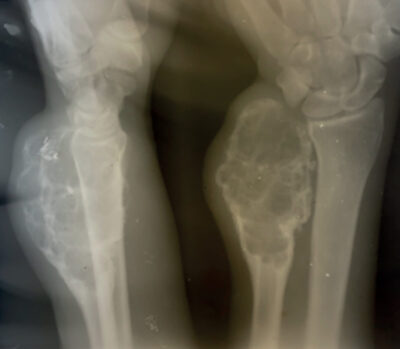Main content
A perspective from the research platform Global Surgery Amsterdam
For decades, international non-governmental organisations (iNGOs) have organised short-term surgical missions in low- and middle-income countries (LMICs). Traditionally, these missions provide surgical care for patients in need, provided by volunteer surgeons from high-income countries (HICs) who travel to LMICs for a set period, from a few days up to several weeks. Although such missions are common, they are increasingly becoming the subject of debate in global health literature. Lack of follow-up and outcome measurements has resulted in limited evidence on the impact of such missions. Recent voices have been critical on the ethical implications of such missions, even referring to them as expressions of neo-colonialism, and pointing to circumstances in which the idea to do good may well have an undermining effect on the local healthcare system.
In this article, we seek to explore insights into current criticism of the traditional model of surgical missions. We believe that in a world with 5 billion people lacking access to safe and affordable surgical care, there is a place for the international surgical community to support surgical care in LMICs.[1] However, a collaborative and therefore more sustainable strategy is needed with local actors in the lead.
Current view on surgical missions
After the 2015 World Health Assembly resolution recognising surgical care and anaesthesia as indispensable components of universal health coverage, the overarching multidisciplinary field of global surgery emerged to address equitable surgical care across international healthcare systems.[1-3] Recognition of this specialty led to increased public attention, which also meant that international surgical activities performed under the global surgery flag gradually became the subject of social and ethical debate. As surgical missions are perhaps one of the most common examples of promoting access to surgical care worldwide, these activities have also come under scrutiny.
Over the past year, the debate on surgical missions to LMICs intensified alongside the rise of the Black Lives Matter movement and acknowledgment of institutional racism – also within our medical world. Questions were raised whether medical institutions truly reflect society and to what extent activities in LMICs, which are initiated by organisations from HICs, perpetuate neo-colonial narratives.[5-7] Recently on Devex – an online media platform for the global development community – Ameh et al. stated in their article that global surgery is at a crossroads as surgical missions ultimately disempower the very communities they are created to help by undermining the local providers and local infrastructure and displacing the existing healthcare providers’.[7] A publication by Scheiner et al. (May 2020) sent a similar message in their discussion on the pros and cons of surgical missions in the global surgery debate. While surgical missions can result in benefits for local hosts and HIC volunteers, they also run the risk of becoming the “bold new face of colonialism” in LMICs.[6]
Neo-colonialism is used by Ahmed et al. and Scheiner et al. to describe the use of economic, political, cultural, or other pressures by HICs to control or influence LMICs. In global surgery, this might manifest as HICs assuming that LMICs suffer from health problems only economically advanced nations know how to solve.[5-8] While both authors use this term, it would be short-sighted to immediately stop all missions as they also have large potential benefits. In throwing out the baby with the bathwater, you miss the opportunity to strengthen functioning health and surgical systems.
Recent publications by Global Surgery Amsterdam researchers
Publications on methods to quantify the effects of surgical missions are still scarce. In addition to the ethical debate on surgical missions, researchers from Global Surgery Amsterdam (GSA) showed the need to improve strategies of surgical missions from a medical point of view. A literature review by Hendriks et al. showed that little was known about how surgical missions were organised. Information about the purpose, structure, effectiveness, and result of the mission was also often lacking.[4] Following this publication, Botman et al. performed a survey among 61 members of visiting surgical teams to collect information on current practices and possible improvements.[9] A quarter of the respondents stated that there was no collaboration with local actors at all. However, the majority (94.9%) expressed a strong need to develop sustainable partnerships within local healthcare systems as a collaborative way to improve surgical care in LMICs. Training the local staff was considered to be the most important activity during a mission.
Tanzanian perspective on surgical missions
Dr Grayson Mtui, a surgical colleague and medical doctor from Tanzania currently working at Haydom Lutheran Hospital provides insight into how surgical missions can become a sustainable practice. In an interview, he emphasised how missions can be helpful in building the capacity of the local surgical healthcare system and what conditions should be met. To ensure an exchange of knowledge between all parties involved, Dr Mtui emphasises that the local team has to be involved in every step of the mission, including preparations, patient screening, operations, and follow-up. He explained that in order for surgical missions to be beneficial, they also need to include anaesthesia services and training activities for local healthcare workers. He further emphasised that training local healthcare workers to use locally available supplies increases the capacity and autonomy of local healthcare systems. “In Haydom, we started to work together with the visiting doctors instead of being dependent on them. For example, local doctors are now able to perform cleft lip surgery, which would not have been possible without visiting surgeons”. He also insists on jointly developing long-term plans to ensure that missions are a collaborative effort.
His observations are in line with the advice of Ameh et al. and Scheiner et al. and the thoughts of GSA in regard to placing the focus on training of local teams striving for sustainable and equal partnerships. Some NGOs have already shifted to bilateral partnerships as a way forward.[6,7,10] One such partnership is the Smile Train initiative in which surgeons in LMICs are trained by international teams from HICs in performing cleft lip and palate repair techniques. The result has been an increase in both volume and quality of cleft care in the countries where the initiative is active.[11]
The proposed strategy of Global Surgery Amsterdam
Through extensive experience in the field of global surgery, GSA has developed five key focus areas for developing sustainable partnerships in global surgery missions.
- Local ownership: work with a local partner that has ownership of the problem and feels the responsibility to meet the goals set by both partners.
- Bilateral knowledge transfer: teaching is the main activity for visiting surgeons. Use the opportunity to build capacity and provide local healthcare workers with bedside and classroom trainings.
- Research: perform research to assess the local need and to evaluate the impact of activities. When performing surgery with the local team, analyse and evaluate surgical outcomes and complication rates and adjust programme planning accordingly.
- Internet technology: increased internet connectivity allows for stronger communication between the local team, members of the surgical mission, and colleagues in referral hospitals. This can decrease professional isolation of the rural surgical team and ease the referral of patients when needed.
- Collaboration: surgical expertise is just one of the elements that are important to improve surgical care. Always strive to collaborate intensively with partners who have additional expertise that may be required, e.g. public health specialists, economists or organisational experts. Last but not least, building successful sustainable partnerships also requires an understanding of local social and cultural norms as well as the power dynamic between LMICs and HICS.
Prospects
Increasing access to safe and affordable surgical care for 5 billion people is an urgent call to which we encourage surgeons and anaesthetists from HICs to respond. However, as medical doctors with experience in the field of global health, we believe that the traditional short-term surgical mission model is not a sustainable solution. When the (ethical) implications of working as a visitor in a foreign healthcare system are overlooked, it can lead to the disempowerment of local healthcare workers and the communities they are trying to help. Therefore, we encourage building equal and sustainable partnerships that foster bilateral knowledge exchange in support of – not parallel to – the local healthcare system. Future partnerships should include post-surgical care outcome research and strengthening the surgical capacity of local healthcare systems to counterbalance the under-representation of local stakeholders in surgical programmes and research. If we want to make a sustainable impact on the equity of surgical care worldwide, all the voices involved must be heard.
References
- Meara JG, Leather AJM, Hagander L, et al. Global Surgery 2030: evidence and solutions for achieving health, welfare, and economic development. Lancet. 2015 Aug 8; 386(9993):569-624. doi:10.1016/S0140-6736(15)60160-X
- Sixty-eight World Health Assembly. WHA68.16 Strengthening emergency and essential surgical care and aneasthesia as a component of universal coverage [Internet]. 6 p. Available from: http://apps.who.int/gb/ebwha/pdf_files/WHA68/A68_R15-en.pdf?ua=1.
- Bath M, Bashford T, Fitzgerald JE. What is ‘global surgery’? Defining the multidisciplinary interface between surgery, anaesthesia and public health. BMJ Glob Health. 2019 Oct 30;4(5):2001808. doi:10.1136/bmjgh-2019-001808
- Hendriks TCC, Botman M, Rahmee CNS, et al. Impact of short-term reconstructive surgical missions: a systematic review. BMJ Global Health. 2019 Apr 3;4(2)2001176. doi:10.1136/bmjgh-2018-001176.
- Yale School of Medicine [Internet]. New Haven: Yale School of Medicine; 2020. Neocolonialism and global health outcomes: a troubled history; 2020 Oct 12. Available from: https://medicine.yale.edu/news-article/27971/
- Scheiner A, Rickard JL, Nwomeh B, et al. Global surgery pro-con debate: a pathway to bilateral academic success or the bold new face of colonialism? J Surg Res. 2020 Aug;252:272-80 10. doi: 10.1016/j.jss.2020.01.032
- Devex [Internet]. Washington, Barcelona, Madrid: Devex; 2021. Opinion: It’s time to end neocolonialism in global surgery; 2020 Dec 3. Available from: https://www.devex.com/news/sponsored/opinion-it-s-t to-end-neocolonialism-in-global-surgery-98679
- Halperin S, Duignan B, Munro A, et al. Neocolonialism [Internet]. Brittanica. 2014 Jul 1. Available from: https://www.britannica.com/topic/neocolonialism
- Botman M, Hendriks TCC, Keetelaar AJ, et al. From short-term surgical missions towards sustainable partnerships: a survey among members of foreign teams. International Journal of Surgery Open. 2021 Jan;28:63-9. doi: 10.1016/j.ijs0.2020.12.00
- Shrime MG, Bickler SW, Alkire BC, et al. Global burden of surgical disease: an estimation from the provider perspective. Lancet Glob Health. 2015 Apr 27;3 Suppl 2:S8-9. doi: 10.1016/S2214-109X(14)70384-5
- Purnell CA, McGrath JL, Gosain AK. The role of Smile Train and the Partner Hospital Model in surgical safety, collaboration, and quality in the developing world. J Craniofac Surg. 2015 Jun;26(4);1129-33. doi: 10.1097/SCS.০০০০০০০০00001656



















































